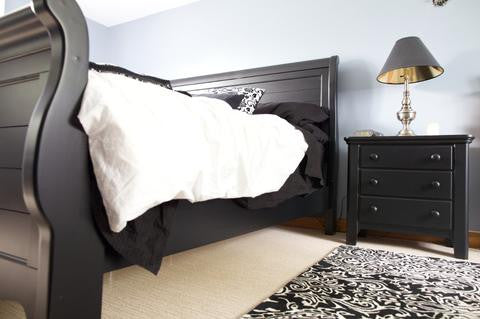Your Cart is Empty

Sleep, and its impact on our health and performance, is a hot topic this year. It was the subject of oversubscribed lectures at the World Economic Forum in January, Ariana Huffington, recently turned “sleep evangelist” after a collapse from sleep deprivation has written a book called The Sleep Revolution: Transforming Your Life, One Night at a Time due out in April 2016, and the field of sleep medicine is growing exponentially as the National Institutes of Health states that sleeplessness creates $16 billion in healthcare costs and $50 billion in lost productivity.
Experts agree that sleep is one of the key elements of our health - defined as the "glue that ties our health together" by Dr. Murali Doraiswamy, a renowned psychiatrist and brain health expert.
Dr. Aki Hintsa, who has worked with business leaders, athletes and Formula 1 drivers, promotes six elements of wellbeing: - physical activity, sleep, nutrition, biomechanics (translation: Pilates or stretching), mental energy and general health. His statement that “Operating three nights in a row on just five hours sleep is equivalent to driving a car drunk" is striking, especially since he works with race car drivers.
National Sleep Foundation research shows that if sleep is cut short, the body doesn’t have time to complete all of the phases needed for muscle repair, memory consolidation and release of hormones regulating growth and appetite. Sleep also allows our brain to process emotions and memories from the day, preparing us for the next.

How much sleep do we need?
Many sleep professionals recommend a specific number of hoursof sleep each night, ranging from a maximum of 19 for some infants to 5 for some adults over 65. Another perspective comes from Dr. Elizabeth Klerman, of Harvard Medical School, recommending that we will know if we have adequate sleep if we:
How can we get better sleep?
To improve our health, relationships and performance through better sleep will require a cultural and behavioral shift. Huffington argues that sleep-deprivation has acquired its macho image, a sign of strength and dedication. Thomas Edison was apparently wrong when he called sleep an "absurdity," and predicted in 1914 that "a million years from now man won't go to bed at all”, and now we know that he was secretly “power napping”as he made this claim.
The current technological revolution known as the Fourth Industrial Revolution, puts human beings back in the center,. and Dr. Klaus Schwabstates that “anything -- including and especially sleep -- that makes us more human and able to connect with who we are will be more valuable”.
There are so many expert opinions on how to actually get your required sleep, and here are the most consistent recommendations I have found:
We will continue to keep you updated on advances in sleep science, technology, mattresses and bedding so that you can be a part of the sleep revolution and live better!